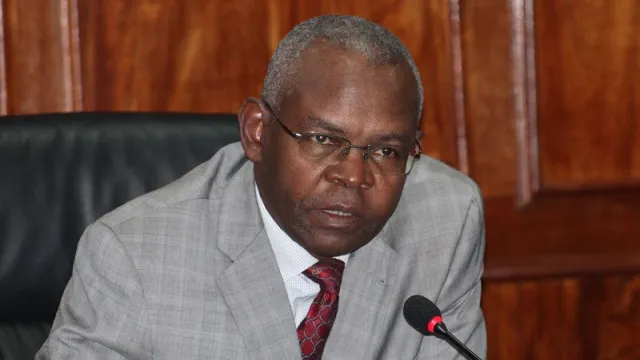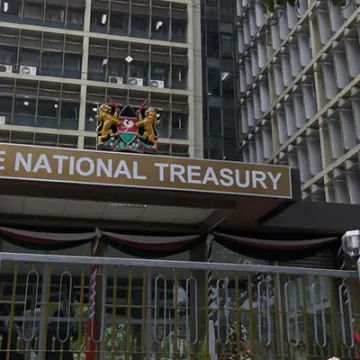Bankers push CBK for rate cut to ease loan losses, spur uptake

Central Bank Governor Dr. Kamau Thugge. CBK's Monetary Policy Committee is set to hold its last meeting of this year on December 5th to review the banking sector lending policy.
As the Central Bank's Monetary Policy Committee (MPC) prepares to meet on 5th December, bankers in Kenya are calling on the policymakers to cut the key lending rate even further in order to stimulate loan uptake.
In October, the CBK slashed key interest rate by a record margin since the Covid-19 economic fallout, setting it at 12 percent from 12.75 percent previously citing easing inflation.
Even with that action, bankers report that business activity across the country has been contracting steadily. Coupled with thinning incomes due to punitive taxes, and pilling deductions on salaries, traders and individuals have stopped taking new loans.
What's more, with high interest rates and continued failure by the government to pay up pending bills, banks are left staring at customers who are unable to service existing loans thereby suffering defaults.
"The housing market, as measured by the Kenya Bankers Association Housing Price Index, mirrors these dynamics, with the recent data indicating subdued growth in housing prices, highlighting weaker demand linked to restricted credit access and diminished consumer purchasing power," KBA stated in an industry survey dated Saturday, 30th November 2024.
Their call for lower loan rates is further backed by official statistics showing easing inflation, and a resilient economy as key indicators for the CBK to consider reversing the "decline in private sector credit growth."
At the moment, the country's inflation remains anchored below 5 percent. "The year-over-year inflation rate slowed to 2.7 percent in October 2024, down from 3.6 percent in September 2024; driven by lower food and fuel inflation," the KBA noted.
However, the lenders have been grappling with decreasing loan uptake attributable to tough monetary stance that was adopted since 2023.
Last year, the CBK rolled out successive policy rate hikes to reverse rising inflation in the country. Consequently, the banking industry experienced increased short term/ money market interest rates, and extended to Treasury bill (T-bill) yields.
"The rise in T-bill rates drove up borrowing costs - amidst elevated non-performing loans (NPL) ratio on private sector loans at 16.5 percent in October 2024 - constrained extension of credit to the private sector," KBA explained.
KBA added; "Faced with tighter liquidity and heightened default risks in the private sector, banks tightened lending standards to avert a further deterioration in asset quality; prioritizing investments in less risky assets such as government securities. Consequently, bank lending to the private sector growth declined to 0.4 percent in September and near zero in October, 2024."





